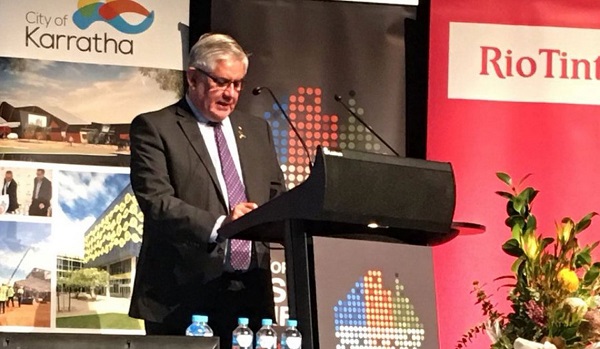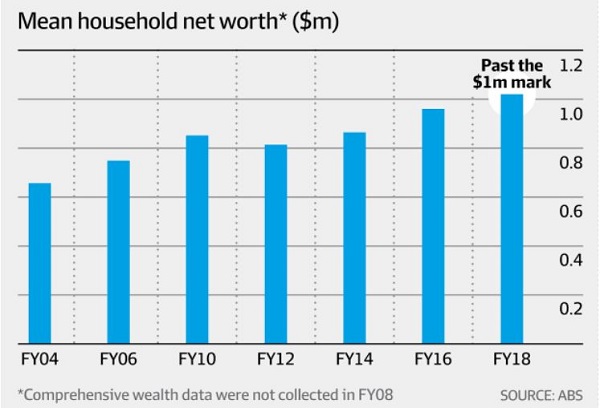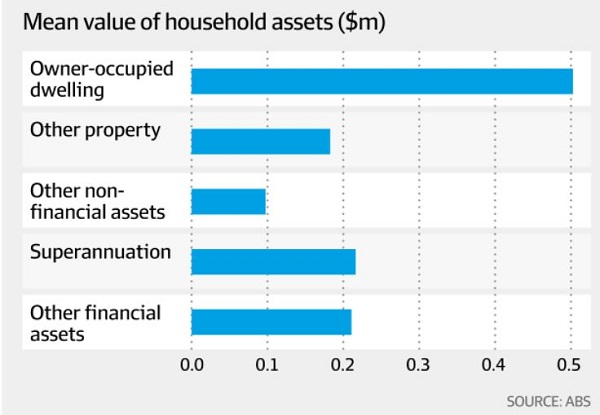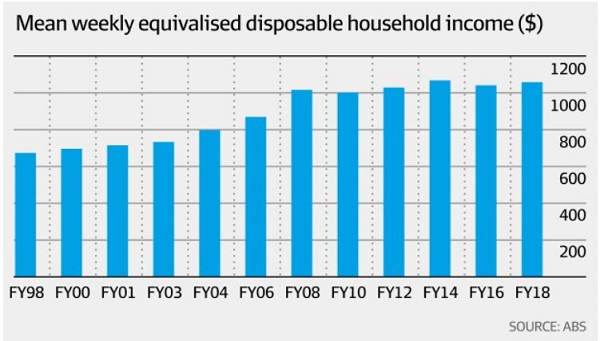1. It is untenable for the Coalition to reject the Uluru statement twice
That’s what Paddy Manning says:
- It makes no sense whatsoever for the prime minister to appoint Ken Wyatt as the first Indigenous minister for Indigenous Australians, give him his head on a bipartisan approach to a referendum in a major speech at the National Press Club, then, within 48 hours, veto the one position about which those who devised the Uluru Statement from the Heart feel most strongly about – namely, a constitutionally enshrined Indigenous voice to parliament.
He says it is yet “another example of the same diabolical policy-wrecking dynamic we’ve seen over the last five years from the Coalition, in which the conservative wing maintains the upper hand because it is most willing to have a hissy fit and, if it comes to it, threaten the government’s narrow majority.”

Scott Morrison could do a deal with Labor, the Greens and the rest of the crossbench, but he won’t. If he doesn’t at some stage, he’ll do no better than Malcolm Turnbull who effectively turned himself into a climate denier so he could keep the party together.
Professor Anne Twomey, constitutional lawyer, said the Uluru Statement never intended a constitutionally enshrined Indigenous voice to Parliament that would ‘dictate or instruct or insist’. Under the constitution it simply can’t be a third chamber of parliament, and to say it could is nonsense. Why anyone listens to Craig Kelly is a mystery.
I think the Labor states will have to make moves that people become comfortable with. As John D has linked, the Queensland Government has announced a ‘conversation’ to formalise an Indigenous treaty.
Victoria is creating an elected body “230 years in the making”:
- First Peoples’ Assembly of Victoria will be a not-for-profit company with 33 elected representatives from five voting areas – four in regional Victoria and the fifth in metropolitan Melbourne – whose role will be to negotiate a framework for a treaty.
Linda Burney says the voice to parliament has to be enshrined in the Constitution so that it cannot be as easily abolished as ATSIC was by John Howard in 2005. Then she reminded everybody why the voice is necessary:
- “On every single social rung – it doesn’t matter whether it’s health outcomes, education outcomes, overcrowding, domestic violence, life expectancy – Aboriginal people and Torres Strait Islanders are on the bottom rung. And that is because there has not been Aboriginal people at the table helping design the legislation and advise on legislation and programs. And that’s what this voice is actually about.”
2. ‘Last chance’ tourism at Uluru
As the Uluru climb closure looms tourists are in a scramble to climb the rock, swamping the infrastructure and making a frightful mess.
Here’s the rock in all its splendour:

We were there in 2014. My wife and I did the base walk, about 10 km around the rock, and saw sites like this:

And this:

To climb the rock you have to walk right past a large sign asking you not to.
Bad karma, I think.
3. Are we all millionaires?
Well, no. According to an ABS survey reported in the AFR (pay-walled) mean household wealth is now over a million:

Median wealth per household at $558,900 is around half the average, and on average there are 2.6 people in every household.
- The wealthiest 20 per cent of households still hold more than 60 per cent of household wealth, now averaging $3.2 million per household in that quintile.
The AFR actually doesn’t tell us how the bottom dwellers are getting on, but inequality of wealth is only up a bit, probably due to house prices, which is where much of the wealth resides:

House prices peaked in 2017, but surged as much as 70 per cent in the preceding five years.
Income inequality is not growing, according to the survey.
The Gini coefficient came in at 0.328 for equivalised disposable household income figures, down from 0.336 about 10 years ago. However, income has been flat for about 10 years:

Our lifestyle is nevertheless expanding, as households with debt levels of at least three times income increased to 28.4 per cent from 23.4 per cent.
The percentage of households with debt remained about the same – it rose slightly over the decade to 72.8 per cent from 72.2 per cent.
So having voted in a government supposedly with a plan to make us all better off, if we’ll have a go, we sail on into the future.
3. Quiggin sees a three party system after the election
Quiggin has it sorted, it seems. For some time he’s been writing about:
-
the global emergence of a three party system, consisting of (a) the Trumpist right, (b) a green-socialist-social democratic left and (c) the remains of the former consensus between hard and soft versions of neoliberalism.
He thinks Scott Morrison has shown his true colours in how he has treated Ken Wyatt. He’s anchored in the Trumpist right.
Labor has “collapsed completely” and Albanese has taken Labor to the right, leaving the Greens as “the only party supporting a recognisably left, or even social-democratic position” so they will inherit that space if they can stop fighting each other.
The problem for me is that I don’t know what all these words mean. My son Mark questions whether neoliberalism is a thing at all.
Respectfully, I can’t see how Labor has collapsed. Having lost a policy-rich election, Labor would do well to review its policies. It still has a platform, which will be reconsidered at the next national conference, due in 2021.
Finally, I can’t see how Albo is more to the right than Shorten. I had it figured the other way around. To me he seems more viscerally committed to the well-being of the marginalised and dispossessed, but thankfully has abandoned class warfare rhetoric. Also Albo and Shorten are not the only people in the Labor sandpit.
Charles Richardson in Two views on realignment looks at Quiggin’s analysis, and uses other analysts to chop and stir the stew. On Quiggin, he says mainstream conservatives are losing ground electorally, and are moving towards Trumpism:
- This suggests that the current three-party system might rapidly resolve itself into a new two-party system: Trumpists against everyone else, with the remnants of the old neoliberal duopoly being forced to take sides.
Robertson says the realignment:
- started 30 years ago, when the collapse of the Soviet empire rendered traditional socialism obsolete and kicked away some of the main props of the left-right spectrum.
Since then, parties of both left and right have been looking for new causes. The former have found them, somewhat hesitantly, in liberalism and cosmopolitanism; the latter have found them, rather more enthusiastically, in reactionary nationalism.
Finally:
- But old attitudes die hard. Many on the left still cling to something like socialism, and some will even make their peace with xenophobia in exchange. Many on the right still see themselves as warriors for freedom, refighting the Cold War, and believe they can square the circle by marrying market liberalism with Trumpism.
There’s no limit to the strange ideological combinations that people can bring themselves to believe. But the dynamics of political competition tend to drive systems towards bipolarity: realignment may still have some way yet to run.
Food for thought. Globalisation, I think, peaked economically, around the turn of the century, but persists in ‘free’ trade negotiations and the corporate power of giant multinationals. However, the movement of peoples, which will increase dramatically as climate change bites, has revived the nation state and nationalism.


I can’t see such a thing as Trumpism, he’s too much of a chameleon to pin a label on.
Looks to me that Trump and Brexit were the result of moderate conservatives putting a collective finger up to the major institutions that have moved so far left.
Just my 2c.
What’s the point of being “viscerally committed to the well-being of the marginalised and dispossessed,” if your actual policy is to agree with whatever Morrison proposes, while bagging out the Greens for suggesting action like increasing Newstart
Viscerally committed….. once upon a time……
There are some “marginalised” who don’t seem to figure much: the unemployed, the non-unionised casual workers, low income farmers, etc.
Kevin Rudd PM asked all his MPs to visit homeless shelters before Parlt began. Not sure what came of that….
I can see that Labor, and some sections of the Greens, concentrate effort on supporting unionised workers. But the proportion who are unionised has been in secular decline for decades, innit?
Is Albo “left wing”?
Perhaps another way to ask would be: Is the Labor Left in any sense “left wing”?
Golly, we’ve travelled a fair few miles if to be social democrat is now “left wing”. Bob Hawke was friends with several real Commos. Julia Gillard hung around with a crew of real ex-Commos in her immediate post-Uni days.
Splutter.
Amazed,
of Queen Victoria’s State
John Q, if Labor bagged the Greens I did not hear it. Frankly, I doubt they did, except see below.
Journalists and others are regularly mis-reporting stuff about Labor.
The Guardian reported at length what Jim Chalmers actually said in Labor says Coalition must take action on Newstart ‘right now’ after pensioner boost .
The ‘action’ proposed was:
The difference in approach compared to The Greens is how Labor goes about policy development. The Greens can always say exactly what they would do, knowing that they won’t be in a position to do it. Labor has a more deliberative approach, which, in government, can also take advantage of the best expertise.
They should be given credit for this.
Voting for the tax cuts at the death was strategy, not policy.
I was at a meeting last night where changes were being proposed to to the Labor platform, which has 310 pages of material. If you want to change it, you change it line by line. The proposed changes then go off to regional meetings state policy committee, state conference, and eventually get ratified or not at the next party conference in 2021.
In effect it is possibly more flexible than that. I’m a new boy learning the lay of the land.
The night before I went to an Avid Reader session where ABC RN’s Paul Barclay interviewed Eric Jensen, who has just written a Quarterly Essay on Shorten and ScoMo. In the course of time it will be broadcast on Big Ideas.
He told us that Labor now stands for nothing. He edits The Monthly and calls himself a journalist and biographer. It’s a fair bet that he doesn’t know the Labor platform exists, or how policy based on the platform is developed.
Brian:
With all due respect you haven’e got a clue re what effort the Greens put into their policies and election initiatives. (Keep in mind that I have held a number of key policy roles in the Qld Greens as well as having served on expert groups set up to help with the details for the last lord mayoral campaign.)
My take on the Greens is that their role is to set out what needs to be done and why it needs to be be done but that they get into trouble when they start getting into the how.
They make two mistakes when they get into the how. Firstly they make themselves easier to attack. For example, the obsession re putting a price on carbon set up the “great big carbon tax” that Abbott took great delight in attacking with deadly effect.
It looks to me as though Labor fell into the same “how” trap. My take was that they spent 6 years preparing this detailed plan for government and, after all this effort, couldn’t resist some of the details, details like the franking credit policy that was used to convince the oldies that Labor was coming after them.
Have a look at your precious 310 page policy document and ask yourself how much a Morrison would find to attack and tell lies about to people who would struggle understand what it was all about.
Albo made the right decision re tax. What he did was avoid the political mistake of setting himself up for claims that he would increase taxes if he gets into power while leaving himself open to do just that if it makes political sense by the time of the next election.
John
Did you mean to write that Labor “couldn’t resist mentioning some of the details” ?
Do you advocate, rather, that a Party sets out only its general principles, and what it aims to achieve?
That’s a ‘microscopic target’ approach. Wouldn’t it be mercilessly attacked? Instead of “where’s the money coming from?” a bogeyman of “you can’t trust Party X, they are so arrogant they won’t let anyone know their plans!”
It also sounds, I dunno, kind of undemocratic? Aren’t the voters supposed to have a rough idea of what’s planned? I thought that was the basis of the High Court decision on “freedom of political speech”: a free and fair election can’t be held unless candidates are able to speak freely (about the future) with electors….
But what would I know?
Mr A
Mushroom Club
PS: I think Labor was so proud of its policies last April and May that it spruiked them, and Bill never tired of talking about “the big end of town”.
No doubt went down a treat with some Union leaders… but perhaps not with sufficient voters to get him over the line and into The Lodge.*
Just a guess. And one can believe it, without calling BillSpeak “old cloth cap Class War rhetoric”.
* Funny, that.
(It turns out that pleasing some Union leaders wasn’t the Path To Victory.)
I don’t think Labor stands for nothing, but do believe Labor needs to undertake rigorous self-analysis.
Step 1: why has formal Union membership been in secular decline for decades?
Step 2: if the Yoof didn’t turn out to vote, why?
Sir Ambi of the high dray:
I appreciate that all dray left wheel lubricating policy has to cover is a warning of a Sepoy uprising if pig or cattle grease is used.
However, you might have noticed in the last election that Labor lost this election because it was silly enough to tell voters that the cost of some of their promises was going to come by removing the franking credit tax cut being enjoyed by some SMF tax avoiders who were photoed standing in front of their cruisers. If you had noticed further Morison managed to convince everyone over 60 that Labor was after all their money even though it wasn’t true . (We oldies are inclined to panic when the money we have to live on for the rest of our lives.)
By contrast , the LNP refused to explain where the money for their tax cuts was coming from – and won the election.
I think it is smart to have election initiatives backed by homework but the back-up should only be used in emergencies and presented as “this could be one way of doing what needs doing” along with the dropping of a few buzzwords to show you have inside knowledge.
John D. Claims to be an experienced political skeptic.
I don’t know what the best way to go about informing the public is. I do know that the conservatives have been rewarded for bad behaviour, and while it is successful they are likely to give us more of the same.
About Labor’s platform, I’ve only read the chapter on the environment. I don’t think it is well written, but it’s there. Labor does not stand for nothing.
I do think that on complex policy areas like climate change and health, no matter how much thought and expertise has gone into policy development, it is good to then have a public process where everyone can have an input. Labor was going to set up a Health Services Commission to tackle issued like the future of general practice, preventative health and health insurance.
I’m hoping to do some work on what I think should be the shape of a climate policy.
“John Q, if Labor bagged the Greens I did not hear it. Frankly, I doubt they did, except see below.”
“The Opposition Leader also attacked the Greens as it pressures Labor to back its bill to increase Newstart by $150 a fortnight, saying the minor party does not “ever have to try and add things up”.”
https://www.theaustralian.com.au/nation/politics/albo-defends-tax-cuts-cavein-takes-aim-at-greens/news-story/ad1d2a123d4a09fd29eef75bcce15bcb
Albanese went on to complain that the Greens want to take votes off Labor. The key idea here is that Labor, and particularly the Labor “left”, owns the votes of those committed to social justice and should not be robbed of them by being forced to act on its stated principles.
Brian: It would be good if you had some influence on climate policy.
What people like you and i should do is produce technically sound alternatives to be considered by those that who need to make political decisions re what the party should run with and how to sell it to potential voters. (Sorry, climate clippings just won’t wash.)
The best i have seen was a campaign run by a good campaigner who collected together teams of experts technically and politically good proposals. (Most of the experts came from outside the Green bubble.)
Best of luck with your sort out Labor campaign.
Sepoys John?
Are the Sepoys back??
Shiver our timbers and brace the mainsail.
I shall have a word to the Commodore and ask the Quartermaster to unlock the Musket Armoury.
So much snow and rain recently, I fear some of our powder is damp, sadly.
Too late now to fashion a decent crossbow out of a few stout saplings.
Hoping soon to see the relief party sent up from Melbourne. Mr Burke is being very tiresome about our lack of decent Whiskey.
I trust we are still thrashing that bounder upstart Bonaparte??
Ambi:
They will be back if you aren’t more careful about what you use to grease those dray wheels of yours.
John Q: Labor needs to understand that there are some seats where the Greens have a better chance of beating the conservatives than Labor and behave accordingly. The Greens are the only true conservatives these days. Some traditional conservatives understand this and are willing to switch to the Greens
Having said this, the Greens don’t help by claiming that Labor is just as bad as the conservatives.
There are a number of world crisis that may be driving changes to the political scene.
Free markets and xenophobia: For many people in developed countries free market globalization has been a dramatic failure that has left them worse off and too often unemployed. They often see the problem being made worse by the flow of immigrants, guest workers and refugees across their border, particularly ones that are different and perceived to be unlikely to fit in or even worse swamp the current culture. Leaders like Trump have exploited this issue by demanding border walls, returning of refugees to where they came from and the rebuilding of trade barriers. At the moment these movements are being taken over by rich, classic right wing supporters like the Koch brothers. Cutting taxes for the rich is mixed with talk about strong border protection.
The world environmental and population crisis: This blog has said enough about these issues. The Greens are the current winners from these issues but there is no reason other parties from the right or left might take over the issues.
The growing gap between rich and poor: After WWII governments and employers acted to reduce this gap because of the threat of communism. Enforced awards, unions, industrial courts and employers worked at reducing the gap. With the decline in communism a lot of this effort dribbled away, industrial laws made it harder for unions to operate and growing education levels moved people away from unskilled, unionized jobs. In theory, Labor should benefit from this but right wing and green parties seem to be be benefiting.
What this means in terms of the influence of political parties of the future is anyone’s guess.
A number of people claim that Howard’s shutting down of the democratically elected ATSIC is a good reason to have consulting Aborigines in the constitution. However, they seem to have forgotten that at that time ATSIC was constantly in the news for all the wrong reasons. If anything Howard’s shut down demonstrates the need to be cautious about rushing into constitutional change.
My own take is that the Aboriginal community is very very diverse with needs, levels of education etc. varying widely. Better for state and federal governments to communicate directly with these diverse groups instead of having it filtered by a small committee that may have different priorities from some of the groups they are supposed to be representing.
Just to say I’ve nearly finished a new post on climate, but have to go out to do a bit of work again.
Then tonight I’ll work on new salon.
Then tomorrow, with a bit of luck, I’ll come back and take up some discussion points here.
Former Chief Justice Murray Gleeson had some sensible things to say about an indigenous voice in Why I support a Voice to Parliament There is a lot of wisdom in what he said including:
In addition:
All good reasons for not rushing into a referendum before people have a chance to see that the proposal will work and widespread support has been developed. Rushing to a referendum in this parliamentary term is not going to help anyone.
John D, thanks for that.
In the AFR (probably pay-walled) Indigenous leaders change tack on ‘voice’:
Also:
One way of giving Aborigines (who are not members of parliament) a say in parliament is to consider giving representatives of an Aboriginal organization “observer status” in the Senate
Many organizations may grant some people “observer status” at their meetings.
Observers do not have a right to vote. However, they may be granted the right/permission to:
Attend all or part of a meeting or meetings.
Submit some motions/amendments to a meeting.
Move or second a motion.
Speak in support of a motion or amendment.
Speak on some other matters.
Be able to use the parliamentary services to help them do their work.
Lots of details to be sorted out.
Having said this, organizations that are set up by Aborigines to pursue Aboriginal needs and are independent of government may be more effective and independent than something that depends on government for its existence.
Just a few comments on how politics is operating.
John D, I misfired a bit when I said Labor’s approach was more deliberative. Of course I don’t know anything about how the Greens go about policy development, and I’m still trying to work out how Labor does it.
I’d say two things. In some issues The Greens have a definite position, whereas Labor is apt to say that they will consult and develop a position when in government. Palaszczchuk in 2015 plus was said to have run over 80 inquiries. One, for example, was vegetation management. It appears they actually try to keep the farmers on side and come up with workable solutions.
I’ll stick with my notion that on climate, there should be a revamping of the CCA and a climate audit. I looked again at the Greens policy. It’s quite neat. I genuinely liked the notion of going to the electorate with principles and aims.
It has ‘urgency’ all over the place, and I loved the notion of:
Spot on, exactly what James Hansen said. Richard di Natale should put it on a T-shirt and wear it.
However, there is no sense of crisis, and zero net emissions by 2040 is slack.
However, a leader who wants to put that to the Australian electorate has to know rationally why, and also feel it in his gut (her, if it’s a woman).
That leader wasn’t Bill Shorten, but I thought Labor’s climate audit was the best chance of getting there.
Secondly, when issues arise, it is quite noticeable that Di Natale will have a position about which he can talk to the media. Labor frequently waits for the actual text of a bill, then goes through a process of consulting with shadow cabinet and the caucus, which makes them look flat-footed in the 24/7 news cycle.
In Shorten I think Labor had a bloke who wasn’t a natural politician. Eric Jensen had some interesting things to say in an interview with Paul Barclay at the Avid Reader the other night. (Jensen penned The Prosperity Gospel: How Scott Morrison won and Bill Shorten lost the other night. He said that people saw need and uncertainty in Shorten.
Albanese, on the other hand, is a combative politician who loves fighting with Tories.
However, he is conscious that he is competing with The Greens also, and is not going to go away in seats where the Green vote concentrates.
So I didn’t hear it, but I believe he called the Greens motion on Newstart a stunt. Rachel Siewart said tonight that it is the fifth time this time that she has put the motion.
I believe Albo said it starts with a motion and ends with a media release bagging Labor because Labor stuck to its policy of wanting an inquiry. If you want to hear someone talking sensibly and sympathetically about Newstart without politics, go to Brendan O’Connor, shadow minister for employment in this doorstop.
However, the media likes the biffo and it seems we are going to get more of it.
We’ll have to see how that works out.
Boris Johnson won 92,000 Conservative Party members’ votes, to about 46,000 for Jeremy Hunt.
Boris pledges to
* Deliver Brexit
*Unite the nation
* Defeat Jeremy Corbyn,
but as DUD isn’t an inspiring acronym he added
* Energise!!
so now it’s DUDE.
(Blimey)
Ambi: Energise those who think he will be a disaster for Britain?
Energise Scotland where the majority wanting to stay?
John D, unfortunately I think Johnson cares more about his own ego than about Britain.
Crash out and go for an election to distract everyone, and before the disaster sets in. Some think the Lib Dems may rise from the death bed as the sensible centre. I could happen in a first past the post system.
To adapt the words of a senior American politician some years back,
I knew Winston Churchill.
You, sir, are no Winston Churchill!”
***
Yes, Brian, apparently the Lib Dems are in the midst of another Phoenix like revival (see Liberal Party history, UK). But at present they have only a tiny number of MPs.
Ambi: Worth remembering the Liberals were in power during WWl and were diminished by the rise of the Labor party. Anybody’s guess re what will happen at the next election. David Cameron has a lot to answer for.
How is not being in the EU a disaster ?
There are quite a few of us not dictated by it.
The only disastrous things I can think of is the retaliation by the EU head honchos ( not member States ) levelled toward the UK citizens for daring to be sovereign again.
Rest assured, the EU big wigs will be viciously vindictive to dissuade anyone else from leaving the gang they control.
Juvenile bully tactics 101.
Peter FitzSimons
Typical, Bob Brown has a NIMBY hissy fit.
https://www.abc.net.au/news/2019-07-25/bob-browns-opposition-to-wind-farm-labelled-hypocrisy/11345200
Please read the whole thing, it’s a gem 🙂
Jumpy: Bob Brown is an environmentalist who somehow has this touching idea (which I share) that specific climate action proposals should be subject to the environmental checks that other projects are subject to.